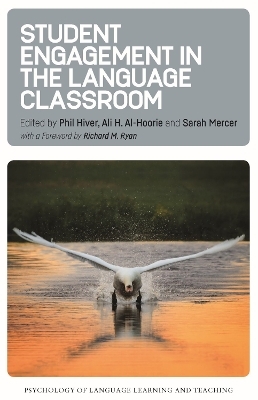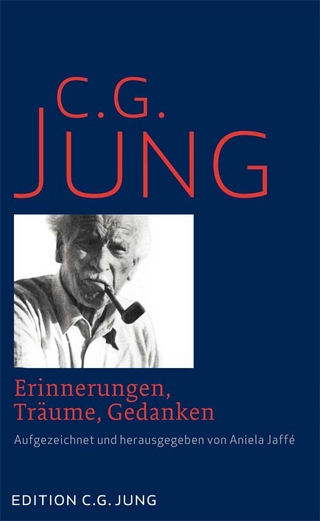
Student Engagement in the Language Classroom
Multilingual Matters (Verlag)
978-1-78892-359-0 (ISBN)
This book defines engagement for the field of language learning and contextualizes it within existing work on the psychology of language learning and teaching. Chapters address broad substantive questions concerned with what engagement is or looks like, and how it can be theorized for the language classroom; methodological questions related to the design, measurement and analysis of engagement in language classrooms and beyond; as well as applied issues examining its antecedents, factors inhibiting and enhancing it, and conditions fostering the re-engagement of language learners who have become disengaged. Through a mix of conceptual and empirical chapters, the book explores similarities and differences between motivation and engagement and addresses questions of whether, how and why learners actually do exert effort, allocate attention, participate and become involved in tangible language learning and use. It will serve as an authoritative benchmark for future theoretical and empirical research into engagement within the classroom and beyond, and will be of interest to anyone wishing to understand the unique insights and contributions the topic of engagement can make to language learning and teaching.
Phil Hiver is an Assistant Professor at Florida State University, USA. His research interests include instructed language learning and the role of psycho-social factors in second language teaching and learning. Ali H. Al-Hoorie is an Assistant Professor at the English Language and Preparatory Year Institute, Royal Commission for Jubail and Yanbu, Saudi Arabia. His research interests include language motivation, complexity theory and advanced research methods in applied linguistics. Sarah Mercer is Professor of Foreign Language Teaching at the University of Graz, Austria, where she is Head of ELT methodology. Her research interests include all aspects of the psychology surrounding the foreign language learning experience.
External Reviewers
Contributors
Foreword: Richard M. Ryan
Chapter 1. Phil Hiver, Sarah Mercer, & Ali Al-Hoorie: Introduction
Part I: Conceptual Chapters
Chapter 2. Yuan Sang and Phil Hiver: Engagement and Companion Constructs in Language Learning: Conceptualizing Learners’ Involvement in the L2 Classroom
Chapter 3. Agneta M-L Svalberg: Engagement with Language in Relation to Form-Focused Versus Meaning--Focused Teaching and Learning
Chapter 4. Ye Han and Xuesong (Andy) Gao: Research on Learner Engagement with Written (Corrective) Feedback: Insights and Issues
Chapter 5. Shiyao (Ashlee) Zhou, Phil Hiver, and Ali H. Al-Hoorie: Measuring L2 Engagement: A Review of Issues and Applications
Part II: Empirical Chapters
Chapter 6. Giulia Sulis and Jenefer Philp: Exploring Connections between Classroom Environment and Engagement in the Foreign Language Classroom
Chapter 7. Carly Carver, Daniel Jung, and Laura Gurzynski-Weiss: Examining Learner Engagement in Relationship to Learning and Communication Mode
Chapter 8. Sarah Mercer, Kyle R. Talbot and Isobel Kai-Hui Wang: Fake or Real Engagement – Looks can be Deceiving
Chapter 9. Linh Phung, Sachiko Nakamura, and Hayo Reinders: The Effect of Choice on Affective Engagement: Implications for Task Design
Chapter 10. Tetsuya Fukuda, Yoshifumi Fukada, Joseph Falout and Tim Murphey: How Ideal Classmates Priming Increases EFL Classroom Prosocial Engagement
Chapter 11. Nicole Mills: Engagement and Immersion in Virtual Reality Narratives
Chapter 12. W. L. Quint Oga-Baldwin and Luke K. Fryer: Engagement Growth in Language Learning Classrooms: A Latent Growth Analysis of Engagement in Japanese Elementary Schools
Chapter 13. Gholam Hassan Khajavy: Modeling the Relations Between Foreign Language Engagement, Emotions, Grit and Reading Achievement
Chapter 14. Isobel Kai-Hui Wang and Sarah Mercer: Conceptualizing Willingness to Engage in L2 Learning beyond the Classroom
Chapter 15. Phil Hiver, Sarah Mercer, and Ali H. Al-Hoorie: Engagement: The Active Verb between the Curriculum and Learning
Index
| Erscheinungsdatum | 10.05.2021 |
|---|---|
| Reihe/Serie | Psychology of Language Learning and Teaching |
| Sprache | englisch |
| Maße | 156 x 234 mm |
| Gewicht | 492 g |
| Themenwelt | Schulbuch / Wörterbuch ► Wörterbuch / Fremdsprachen |
| Geisteswissenschaften ► Psychologie ► Psychoanalyse / Tiefenpsychologie | |
| Geisteswissenschaften ► Sprach- / Literaturwissenschaft ► Sprachwissenschaft | |
| ISBN-10 | 1-78892-359-6 / 1788923596 |
| ISBN-13 | 978-1-78892-359-0 / 9781788923590 |
| Zustand | Neuware |
| Haben Sie eine Frage zum Produkt? |
aus dem Bereich


